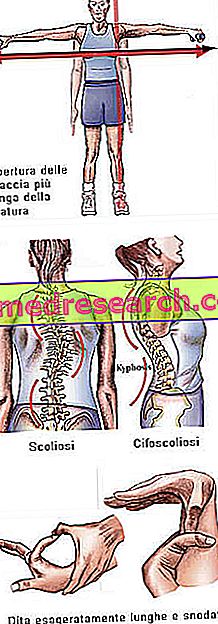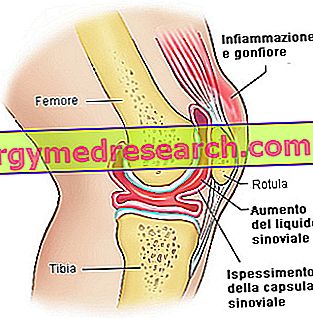MONTEGEN ® is a drug based on Montelukast sodium
THERAPEUTIC GROUP: Antagonists of leukotriene receptors
IndicationsAction mechanismStudies and clinical effectiveness Usage and dosage instructionsWarnings Pregnancy and lactationInteractionsContraindicationsUndesirable effects
Directions MONTEGEN ® - Montelukast
MONTEGEN ® is indicated:
- in the treatment of bronchial asthma not adequately controlled by steroid therapy or with Beta 2 adrenergic agonists;
- in the treatment of seasonal allergic rhinitis;
- in the prophylaxis of asthma characterized by post-exercise bronchoconstriction.
Mechanism of action MONTEGEN ® - Montelukast
Montelukast, the active ingredient of MONTEGEN ®, is a drug successfully used in the treatment of asthma with low responsiveness to cortisone or beta adrenergic therapy.
Its therapeutic efficacy is due to the characteristic mechanism of action, able to antagonize the biological effects of powerful inflammatory mediators called leukotrienes, binding and blocking the related receptors.
More precisely, the mechanism of action of Montelukast concentrates on the receptors of the leukotrienes of the first class, expressed mainly by the bronchial smooth muscle and by the elements of the local inflammation, thus determining:
- inhibition of bronchoconstriction;
- reduction of vasodilation and associated edema;
- inhibition of the activation of the cellular elements of phlogosis;
- control of the inflammatory microenvironment.
All this results macroscopically in the decongestant action on the respiratory mucosa and in the subsequent restoration of the normal patency with consequent improvement of the ventilatory capacities.
Studies carried out and clinical efficacy
MOTENLUKAST AND SLEEP DISORDERS
Case Rep Pulmonol. 2013; 2013: 813786. doi: 10.1155 / 2013/813786. Epub 2013 Sep 5.
Very curious clinical case that reveals the appearance of side effects related to sleep disorders after taking Montelukast. More precisely, the appearance of unconscious night walking is emphasized.
MOLECULAR MECHANISM OF MONTELUKAST
Respir Med. 2013 Sep 18. pii: S0954-6111 (13) 00371-5. doi: 10.1016 / j.rmed.2013.09.006. [Epub ahead of print]
Study demonstrating that treatment with Montelukast inhibits the production and secretion of inflammatory mediators such as IL-8 and RANTES from the upper respiratory epithelium of patients with allergic rhinitis.
MONTELUKAST AND DISLIPIDEMIE
J Young Pharm. 2013 Jun; 5 (2): 64-6. doi: 10.1016 / j.jyp.2013.06.002. Epub 2013 Jul 6.
Study that emphasizes the need to monitor cholesterol levels in patients on long-term therapy with Montelukast given the increased risk of developing metabolic side effects such as hypercholesterolemia and severe hypertriglyceridema.
Method of use and dosage
MONTEGEN ®
Montelukast 10 mg coated tablets.
Although the dosage most commonly used in adults with asthma or seasonal allergic rhinitis is that of a 10 mg tablet per day, preferably in the evening, the entire therapeutic process must be defined and supervised by a doctor experienced in treating such respiratory diseases .
Warnings MONTEGEN ® - Montelukast
The therapy with MONTEGEN ® must necessarily be preceded by a careful medical examination aimed at clarifying the clinical origin of the symptomatology and any prescription appropriateness, and periodically supervised by medical personnel in order to check the patient's overall health status, the possible occurrence of side effects and the consequent therapeutic efficacy.
It should also be remembered that therapy with Montelukast does not represent an emergency therapy, effective in improving the symptomatology during an acute asthmatic attack, but a basic therapy to be continued even in the phases of remission of symptoms, to be eventually associated with remedies of rapid onset of action in the event of acute asthmatic attacks
MONTEGEN ® has among its excipients lactose, therefore it is not recommended for patients suffering from galactose intolerance, lactase enzyme deficiency or glucose-galactose malabsorption syndrome.
PREGNANCY AND BREASTFEEDING
The use of MONTEGEN ® during pregnancy and in the subsequent period of breastfeeding should be reserved for cases of real need and continuously supervised by medical personnel, given the absence of a vast scientific literature capable of fully characterizing the safety profile of this active ingredient for the health of the fetus and infant.
Interactions
The patient on MONTEGEN ® therapy should avoid the simultaneous intake of active ingredients with inducing or inhibiting activity of the cytochromial enzyme system, known the hepatic metabolism of Montelukast.
In fact, these interactions could seriously alter the pharmacokinetic properties of Montelukast, compromising both the safety of use and the therapeutic efficacy.
Contraindications MONTEGEN ® - Montelukast
The use of MONTEGEN ® is contraindicated in patients with hypersensitivity to the active ingredient or to one of its excipients or to structurally and chemically related molecules.
Undesirable effects - Side effects
Therapy with MONTEGEN ® may expose the patient to an increased risk of side effects such as headache, upper respiratory tract infections, diarrhea, nausea, vomiting, hypertransaminasemia and skin rashes.
The incidence of clinically more serious adverse reactions was more rare.
Note
MONTEGEN ® is a prescription-only drug.



